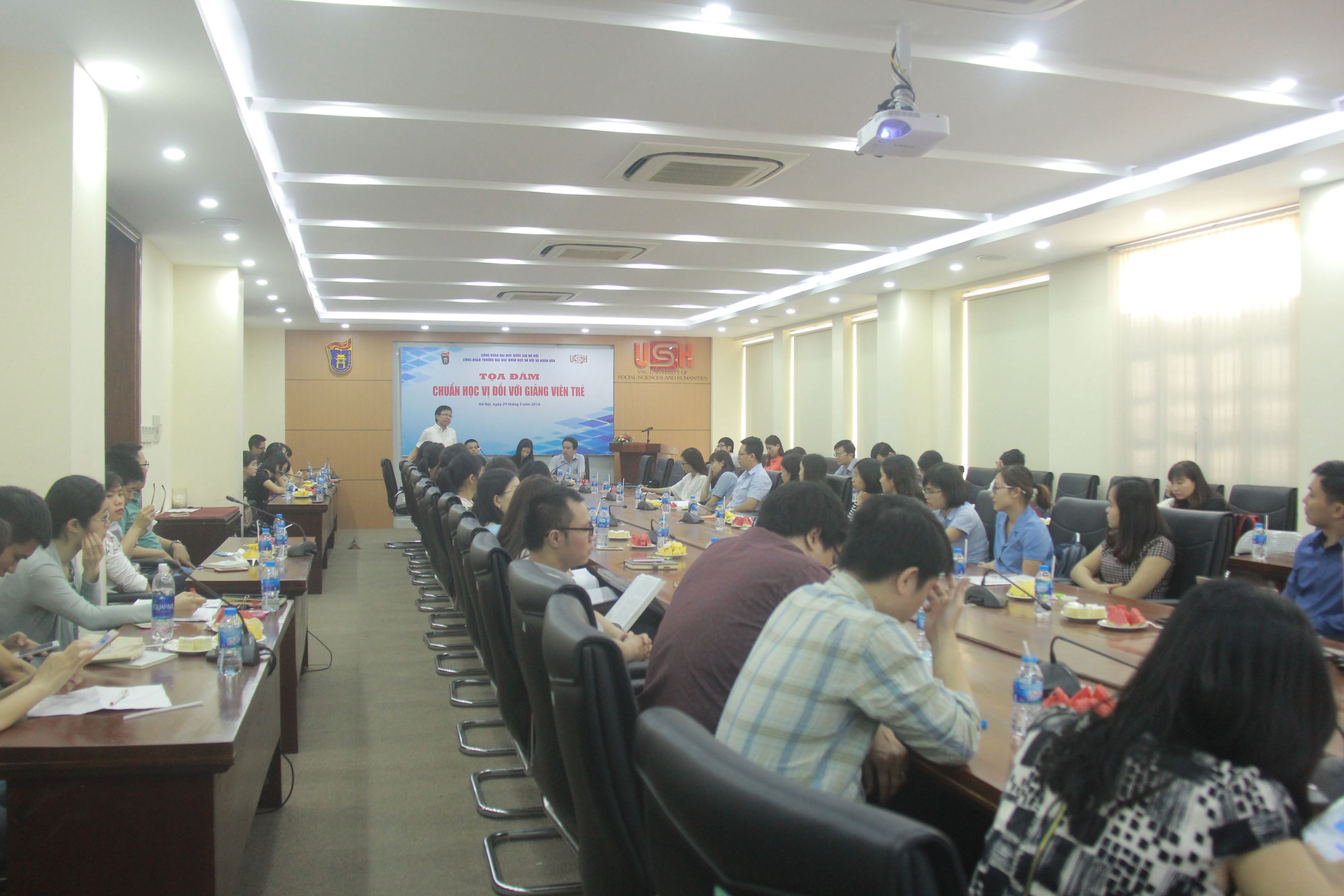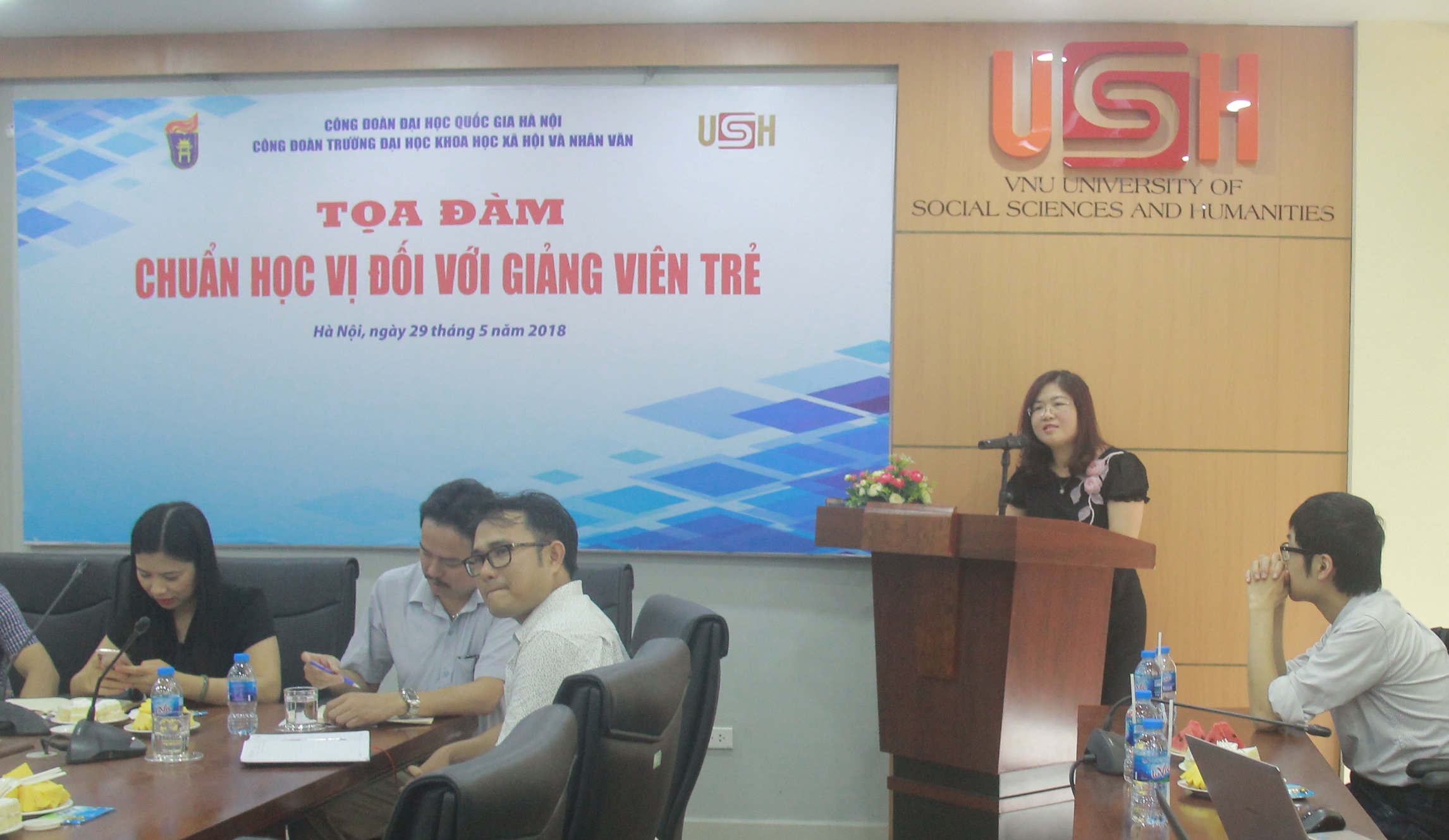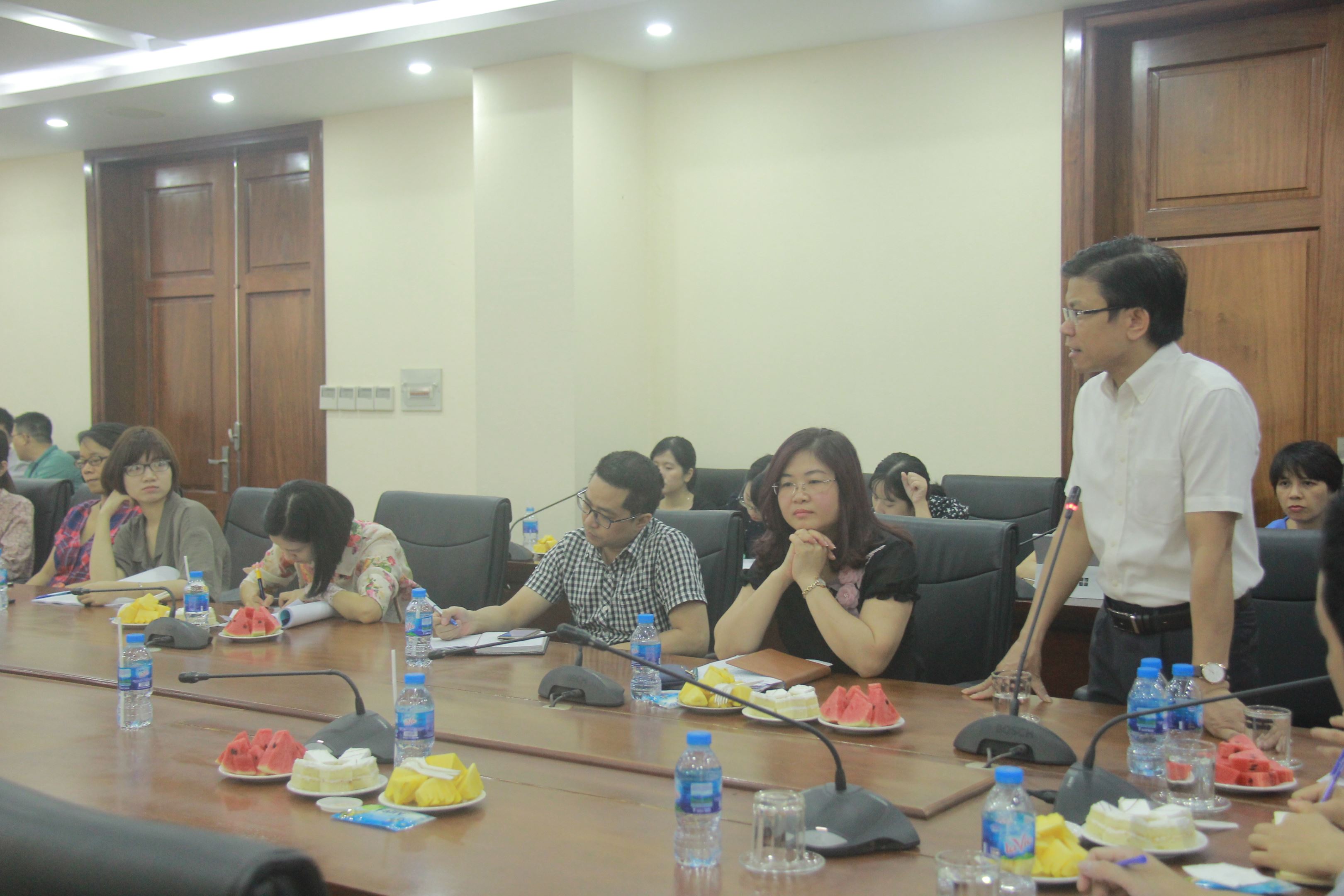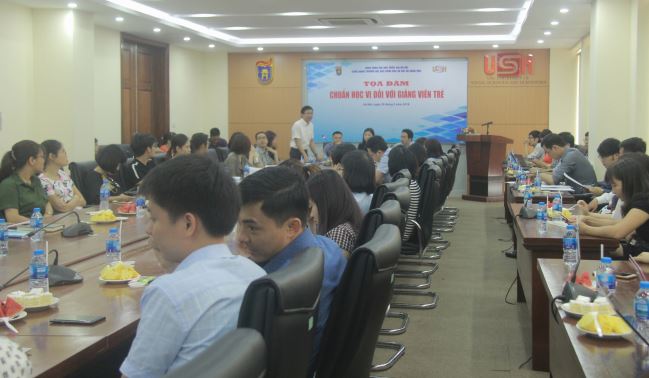Attending the discussion were Associate Professor Dr. Hoang Anh Tuan (Vice Principal of the School), Dr. Ngo Thi Kieu Oanh (Chairwoman of the School Union, Head of the Department of Organization and Personnel).
Speaking at the seminar, Associate Professor Dr. Hoang Anh Tuan affirmed that the standard degree for lecturers according to the regulations of Hanoi National University is the PhD level. Currently, the standard degree rate and the rate of lecturers with the title of Professor and Associate Professor of the University are quite high compared to the general level of schools in the field of Social Sciences and Humanities. However, to further improve the quality of education and enhance the position of the University, the University hopes that lecturers will focus on completing the degree as soon as possible, quickly and on schedule to achieve the standard degree. Associate Professor Hoang Anh Tuan also emphasized the importance of the quality of the teaching staff in attracting students and improving the quality of training.

In the report on “Current situation and solutions to improve the quality of lecturers with academic qualifications in the period 2018-2020”, Dr. Ngo Thi Kieu Oanh said that the academic qualifications will directly impact individual lecturers in a positive way. According to regulations, the School currently only recruits candidates with a PhD degree. If a lecturer has a PhD degree, he/she will be allowed to participate in teaching high-quality programs, postgraduate programs, postgraduate guidance, etc. A PhD degree is a prerequisite for consideration and appointment to the title of Professor/Associate Professor, etc.
The team of lecturers with qualified degrees will have a great impact on the development of the School. Specifically, the team of lecturers with qualified degrees will affirm the existence and development of training sectors and majors. Moreover, when improving quality, this is a condition for considering opening new training programs. At the same time, the standard degree will affect the ratio of teachers/students, the assessment and assessment of training quality as well as the implementation of the targets and plans of the School.

According to the report, the target set by the School by 2020 is 28% of lecturers holding the title of Professor/Associate Professor and 65% of lecturers holding a PhD degree. In fact, statistics to date show that the number of lecturers holding a PhD degree accounts for 63.2%. It can be said that this is a good number and is only 1.8% away from the target.
However, the number of lecturers who are PhD students is still high and this is also a challenge. Moreover, recruiting lecturers with PhD degrees is quite difficult. Each year, on average, the school considers special recruitment of about 5 PhDs. There are very few PhDs transferred to the school. Therefore, the school must proactively train from local resources. Each year, on average, more than 20 staff defend their PhD theses. In addition, the number of lecturers retiring each year is also an obstacle in the process of achieving the school's goals.
Based on that reality, the School has been implementing many solutions, providing policies to support and encourage lecturers to quickly achieve their PhD degrees. Lecturers who are studying for their PhDs have their working hours reduced but still receive full salary; can take a semester off; receive tuition support; thesis funding and bonuses when lecturers complete their thesis on time, etc.

To quickly achieve the set targets, Dr. Ngo Thi Kieu Oanh proposed solutions for the process of achieving academic qualifications for young lecturers. The solutions that have been and will be implemented include strict sanctions for lecturers and departments with lecturers who are behind schedule; departments and faculties need to create maximum conditions when assigning tasks to lecturers who are in the process of completing their theses; strictly assign targets and evaluate the annual performance of each lecturer, department and faculty. In particular, the Training Department needs to further enhance its management role for students and instructors to provide timely support solutions.
The discussion also heard Dr. Nguyen Thi Kim Dung, representing the Trade Union's Professional Board, summarize the survey of young lecturers' opinions. According to the survey, the number of lecturers aged 30-35 reached the highest percentage, and those aged over 40 accounted for a small percentage. In terms of gender, young lecturers, the majority of whom were female, accounted for 65%. The survey showed that age and gender would determine the level of obstacles and difficulties in the process of implementing and defending the thesis, such as health reasons, family circumstances, time, etc., especially for female lecturers.

Author:Hai Duong (CMP)
Newer news
Older news